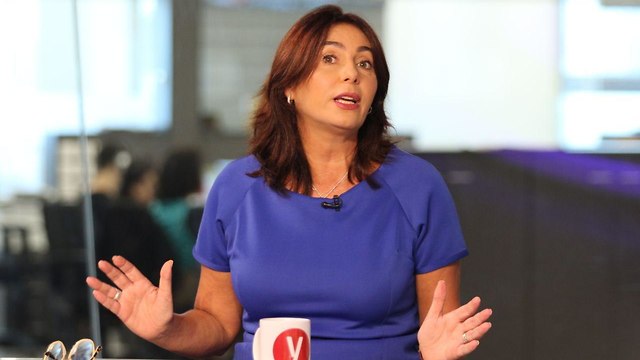
State Prosecutor Nitzan against Regev's Loyalty in Culture Law
Shai Nitzan, who serves as acting attorney general, submits recommendation to the government, saying the culture minister's proposed amendment, which seeks to deny state funds to artists who denigrate national values and symbols, 'raises serious legal concerns,' and will be difficult to defend in High Court of Justice.
Nitzan, who serves as acting attorney general, implied that Attorney General Avichai Mandelblit will find it difficult to defend the amendment in the High Court of Justice.
The amendment to the Loyalty in Culture Law, proposed by Culture Minister Miri Regev and promoted by Finance Minister Moshe Kahlon, seeks to deny state funding to artists and cultural institutions who denigrate the state values and symbols.
For instance, those who disrespect the national flag, incite racism, violence or terrorism; support armed struggle and terrorism against Israel; mark Independence Day as a day of mourning; or deny Israel's existence as a Jewish and democratic state.
State Prosecutor Nitzan, who submitted the recommendation due to the Attorney General Mandelblit’s overseas stay, emphasized the discriminatory aspect of the legislative amendment.
"The proposed amendment raises serious legal concerns, including violation of the freedom of expression … The proposal seeks to restrict freedom of expression by withdrawing support from those whose expressions are inconsistent with the values of the state," he stressed.
Nitzan went on to say that the amendment might deter artists from openly expressing themselves out of fear of losing funding.
"Examining whether cultural institutions are qualified for financial support based on the nature of their art might violate their right to freedom of expression and cause artists to fear creating the kind of content which could potentially affect the government funding," he stated.
Addressing Miri Regev directly, Nitzan said that "in some cases, the proposed arrangement permits to fully shut down access to government finances, meaning that the culture minister could single handedly close a cultural institution.”
"This leads to an arrangement that would affect culture the most—a sphere which requires a special protection when it comes to the freedom of expression. When the punitive measures are so severe, there is a legal difficulty that arises with regards to the amendment’s ability to pass the proportionality test," he concluded.












